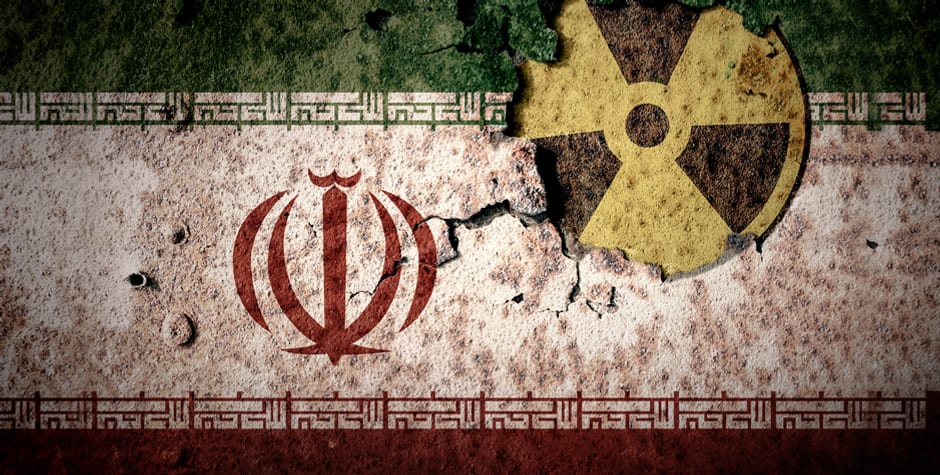Iran Very Close To Possessing Nuclear Weapons. Will Israel Respond? What You Need To Know
The State of Israel informed the Biden Administration and Europe last week that Iran’s progress toward having a nuclear weapon could trigger a strike against Iran by the Jewish state. The mere fact that the U.S. and Europe received this message is a significant development. This is not an idle threat. Iran continues to vow to wipe Israel off the face of the earth. Israel continues to affirm that it will not allow Iran to have the capability to do that, in other words, possess a nuclear weapon. For Israel, this is not about a theory or conjecture about Iran attacking Israel. This is a matter of life and death. Iran is an existential threat to the people living in Israel.
According to the latest International Atomic Energy Agency (IAEA) report, Iran has enriched uranium to the level of 60%; 90% enrichment is considered weapons-grade. It could be much higher now, based on Israel’s statements. Incidentally, in inspecting the Iranian Fordow facility—an underground research and development complex—the IAEA found small fragments of nuclear material enriched to the 84% level. The Pentagon concurred with the IAEA’s assessment, stating that Iran could enrich the uranium they now possess to weapons-grade in about 12 days. The IAEA reports that Iran already has over 8 pounds of enriched uranium, enough for one nuclear bomb if Iran increases the enrichment to 90%. The situation is very serious.
Israel does face logistical challenges if it were to launch an airstrike against Iran. Israeli fighter/bomber aircraft would need to refuel in order to complete the round trip from Israel to Iran and back. There are some reports that Israel reconfigured its F-35 aircraft so they could make the round trip without mid-air refueling, but that is not confirmed.
In the past, Saudi Arabia has given Israel overflight rights in certain circumstances. This could be very important in any future Israeli strike against Iran’s nuclear program. However, the Biden Administration’s pushing Saudi Arabia to the margins diplomatically led to China being the arbiter of new diplomatic relations between Iran and Saudi Arabia. It is questionable now if the Saudis will give assistance to Israel in an attack on Iran.
China intends to usurp U.S. influence in the Middle East, and Biden is helping the Chinese in that goal by vacillating behavior and policies with our Arab Gulf State allies. We have never been as close to a broad, lasting peace in the region as we were over the four years of the previous Administration. Much of that hangs in the balance now.
Under the previous U.S. Administration, Israel made significant progress in its relationship with its Arab neighbors, including Saudi Arabia. The Abraham Accords increased the number of Arab states that have diplomatic relations with Israel to six: Egypt, Jordan, the United Arab Emirates, Bahrain, Sudan, and Morocco. In the last several years, Israel and Saudi Arabia have had a warm relationship and have shared critical intelligence with one another about their common enemy: Iran.
The vacillation of the Biden Administration has negatively impacted some of this historic progress. The Biden Administration delayed defensive weapons sales to Saudi Arabia and the United Arab Emirates and increased tariffs against some of the other Arab Gulf States. The Arabs in the Middle East were weary of the protracted complaints of radical Palestinians and quietly applauded former President Trump as he bypassed the hypocrisy of the Palestinian Authority and its promotion of violence. Now, in violation of U.S. law under the Taylor Force Act, President Biden has renewed hundreds of millions of dollars in aid to the Palestinians, even though they have refused to stop paying financial rewards to individuals and their family members when they attack and attempt to kill Jews or Americans in Israel.
It seems that on every dangerous and earth-shattering issue around the world, the Biden team insists that the President takes the issue “seriously.” The Administration is infamous for stating how “serious” the President is about any given matter—even as his policies and words suggest the opposite. This includes the crisis on our southern border, Russia’s rattling its nuclear sabers, China’s malign activities, our trillions of dollars in U.S. debt as the Biden Administration insists on spending more money, or Iran’s pursuit of a nuclear weapon—and more. “Rest assured,” the White House says, “because President Biden takes the matter very seriously.”
We need serious changes in U.S. policies and in the priorities of this President—not mere verbal assurances. We must bring U.S. debt under control and curb federal spending in order to reduce inflation. Many Americans struggle just to buy food. We need to actually secure the southern border and do what is necessary to combat the drug cartels and stop the flow of fentanyl into the U.S. that is killing tens of thousands of Americans each year. We must confront China on its human rights abuses, theft of intellectual property, and threats to Taiwan. And we must begin now to stop U.S. dependence on China for essential goods and bring production back to the U.S. We must join with our allies and assure Vladimir Putin that he will ultimately pay for his war crimes.
Most importantly, the U.S. must assure Israel that we have their back and will assist them in stopping Iran from ever possessing a nuclear weapon. We must put the world—and Iran—on notice that there is no distance or daylight between the United States of America and the State of Israel. Iran is a dangerous and irrational enemy. It must be recognized as such, and Biden’s behavior needs to match his rhetoric. As the adage goes, “Talk is cheap.” However, idle and misinformed talk in the world’s complicated geo-political environment is outright dangerous.
